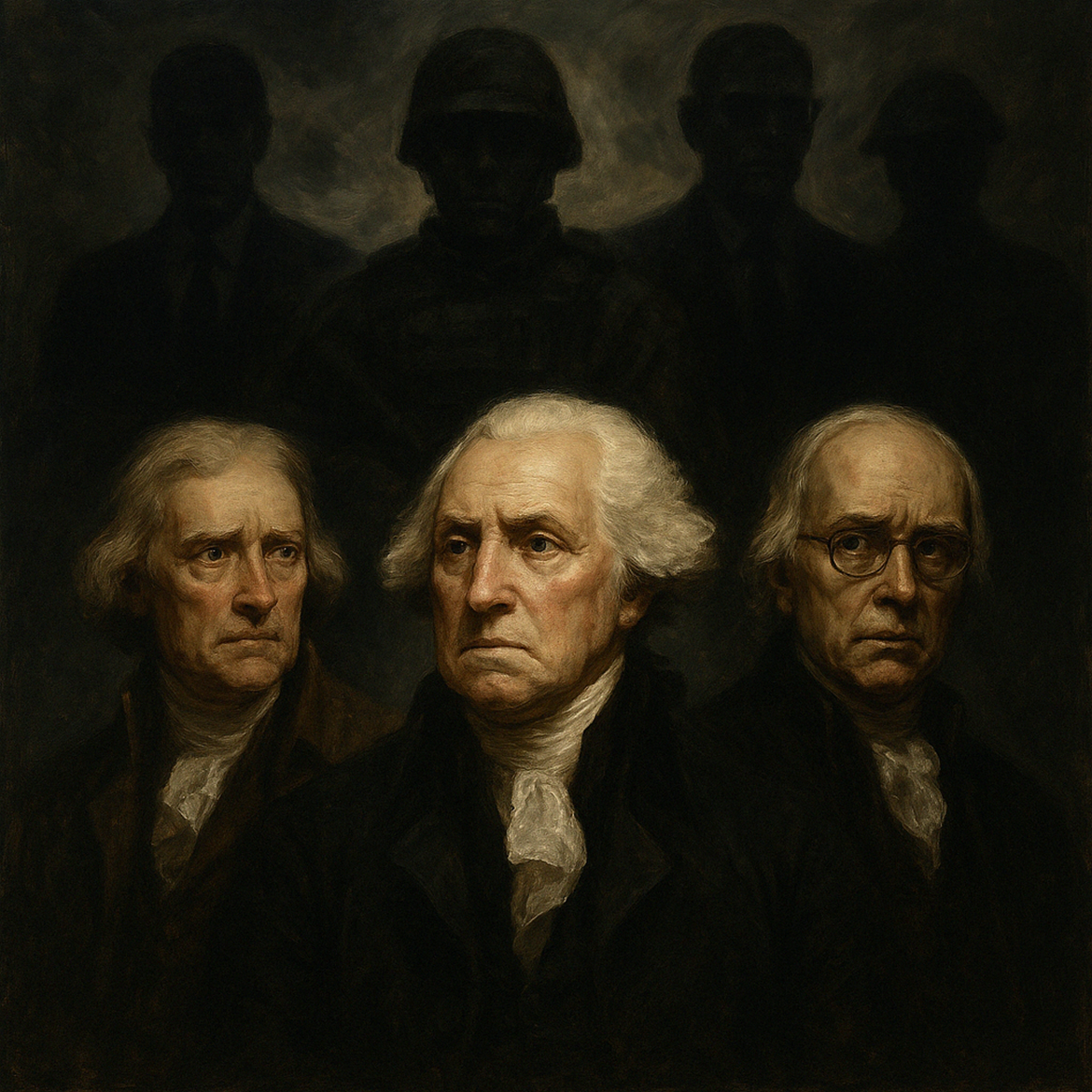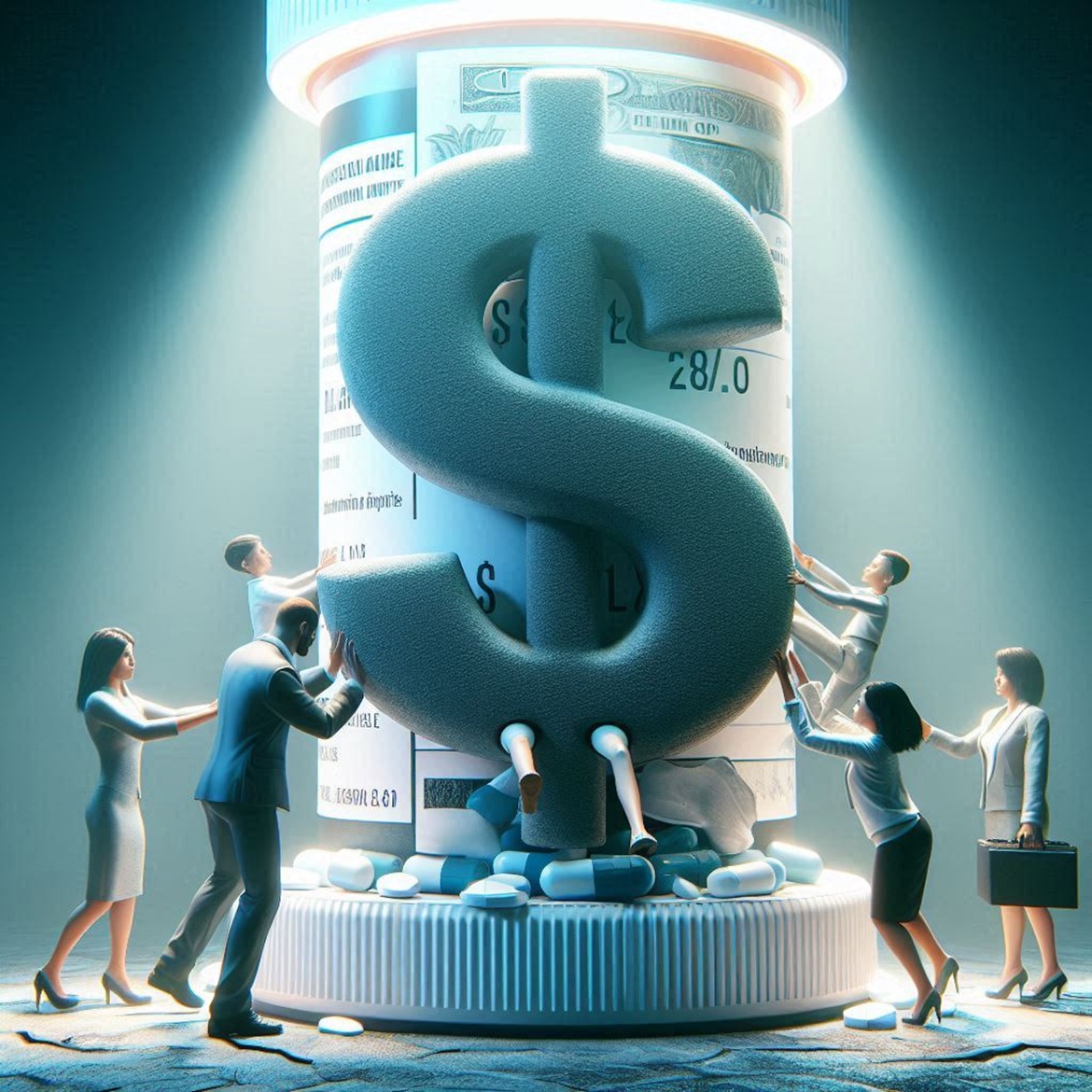The men who built America were not perfect, but they were brilliant. They saw further than most, understanding that power corrupts—and absolute power corrupts absolutely. They knew human nature doesn’t change, so they left warnings. If you look closely, you’ll see their fingerprints all over the chaos we face today.
The Danger of a Standing Army
George Washington and Thomas Jefferson hated the idea of a permanent military. They feared it would become a tool for oppression. Washington warned in his farewell address that overgrown military establishments “are hostile to republican liberty.” Jefferson called standing armies “an engine of tyranny.”
Fast forward to today. The U.S. has troops in over 150 countries. Police departments look more like armies, with tanks and rifles meant for warzones. The founders didn’t trust kings with unchecked military power—so why do we trust politicians with it?
The Slow Poison of Debt
Alexander Hamilton believed in responsible debt, but even he would be horrified by today’s numbers. The founders knew debt was a chain—one that could enslave future generations. Thomas Jefferson said, “The principle of spending money to be paid by posterity is but swindling futurity on a large scale.”
Now, the national debt is over $34 trillion. That’s not just a number—it’s a noose. When a government drowns in debt, it becomes desperate. Desperate governments take desperate measures: higher taxes, frozen bank accounts, and even limits on what you can buy. Sound familiar?
The Silent Takeover of the Bureaucracy
The founders designed a government with three branches to keep each other in check. But they never imagined a fourth branch: unelected bureaucrats. These are the people writing rules that carry the force of law, yet no one votes for them.
James Madison warned that power must be “derived from the people,” not handed to faceless officials. Yet today, agencies like the IRS, EPA, and FDA make decisions that impact millions—without Congress lifting a finger. If that’s not tyranny by paperwork, what is?
The Weaponization of Money
Benjamin Franklin said, “Whoever controls the volume of money in any country is absolute master of all industry and commerce.” The founders hated central banks because they knew private control of money led to corruption. That’s why Andrew Jackson (a later president but a strict constitutionalist) fought to kill the central bank of his time.
Now, the Federal Reserve—a private entity—controls the dollar. They print money out of thin air, causing inflation that steals from savers. Meanwhile, politicians use banks to silence dissent. Freeze a protester’s account, and you freeze their voice. The founders would call this financial tyranny.
The Erosion of Free Speech
The First Amendment wasn’t just about religion—it was about truth. John Adams said, “Liberty cannot be preserved without general knowledge among the people.” The founders knew that if the government controlled information, freedom was dead.
Today, we see “fact-checkers” (often tied to those in power) deciding what’s true. Social media bans certain opinions while boosting others. The founders didn’t fight a revolution so that a handful of tech billionaires could decide what you’re allowed to say.
The Surveillance State
Thomas Jefferson wrote, “The price of freedom is eternal vigilance.” He meant watching the government, not the other way around. Yet today, the NSA tracks calls, cameras record faces, and algorithms predict behavior.
John Adams warned that “fear is the foundation of most governments.” Fear of terror. Fear of disease. Fear of “disinformation.” Every crisis becomes an excuse to strip away privacy. The founders would ask: If you’re not doing anything wrong, why is the government always watching?
The Loss of Local Control
The Constitution was designed so that most power stayed with states and towns. Patrick Henry thundered, “The tyranny of Philadelphia [where the Constitution was written] may be like the tyranny of George III.” He wanted decisions made close to home, where people could hold leaders accountable.
Now, federal mandates override local laws. Schools, hospitals, even small businesses must obey distant bureaucrats or lose funding. The founders called this “consolidation”—and they saw it as the death of liberty.
What Would the Founders Do?
They wouldn’t panic. They’d organize.
George Washington didn’t win the Revolution by complaining—he trained an army. Thomas Jefferson didn’t just hate tyranny; he wrote the Declaration of Independence. The founders fought back with words, laws, and, when necessary, action.
Their message is clear: Freedom isn’t lost in a day. It’s chipped away by “emergencies,” “exceptions,” and “for your safety.” But the tools to fix it are still here—elections, juries, and the Constitution itself.
The question isn’t whether the founders warned us. The question is: Are we listening?




